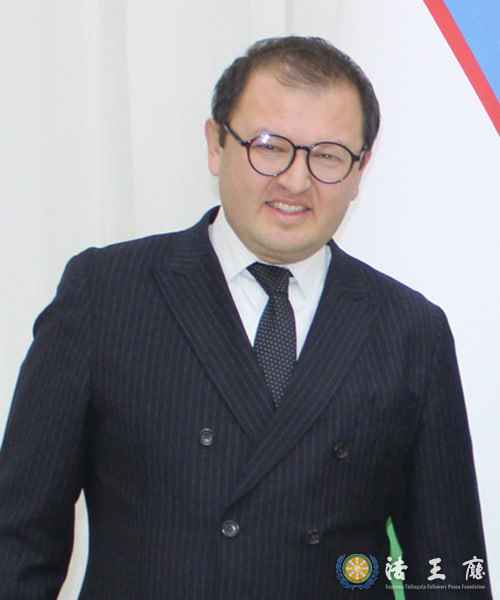법왕청신문 이정하 기자 |
By Reporter Kayla lee
The following article and picture materials have been provided by the Embassy of the Republic of Uzbekistan in Seoul for publication by
By Nodir Jumanyozov, Head of Department of the Ministry of Justice of the Republic of Uzbekistan, PhD of the Chung-ang University of the Republic of Korea
It should be noted that in recent years, under the leadership of the Head of State, there have been significant changes in the system of labor relations, as well as in all areas.
Large-scale work has been carried out in this area to introduce institutional, organizational, legal, legislative, normative and international standards.

I would like to draw your attention to the fact that the Labor Code of the Republic of Uzbekistan was adopted on December 21, 1995 and entered into force on April 1, 1996. This is the first Labor Code adopted among the CIS (Commonwealth of Independent States) countries.
For comparison, I would like to note that the Labor Code of Russia was adopted and entered into force in 2002, and the Labor Code of Kazakhstan was adopted in 2007.
But the regulation of social relations in the field of labor, which is developing more and more, required the further improvement of the current labor legislation and its adjustment to the requirements of "New Uzbekistan".
As the head of state noted, the new Labor Code is a progressive code, and one of its main goals is to bring legal relations between the employer and the employee to a new level!
To date, the Republic of Uzbekistan has ratified 19 conventions of the International Labor Organization. The experience of more than 40 developed foreign countries, including Germany, Sweden, Norway, Great Britain, Latvia, Estonia, Japan, South Korea, and the CIS countries, was studied during the development of the new version of the Labor Code.
The adoption of the new version of the Labor Code will ensure the balance of interests of employees and employers, taking into account the requirements of the market economy.
It also serves to adapt the provisions of the Labor Code to international legal norms, including international agreements ratified by Uzbekistan.
At this point, it would not be an exaggeration to say that 2022 has been a productive year for the labor legislation of Uzbekistan. Because on March 10, 2022, the international Cotton Campaign stopped calling for a global boycott of cotton from Uzbekistan.
This means that the international community now recognizes that there is no forced labor in Uzbekistan. Ending forced state labor in the cotton harvest is a major achievement and an important step towards establishing and maintaining international labor standards for Uzbekistan's growing textile industry.
The size of the new version of the Labor Code is almost 3 times larger than the current one, and includes 581 articles. The document contains issues such as employment, individual labor relations, vocational training, retraining and upgrading of employees, labor regulation features of certain categories of employees, protection of the right to work of employees, control of consideration of labor disputes.
In the direct operation of the norms of the new code, in the effective implementation in the life of labor market participants, employees, employers, job seekers, as well as heads of authorized organizations and bodies, the content and essence of the articles in the document should be explained in a simple, clear and important explanation.
The new version of the Labor Code, which will serve for the future development of the labor market, defines the main directions of improving the labor legislation of our country in terms of the development of the social sphere and economy in our country, including the improvement of the investment environment.
In the future, this code allows for the legal regulation of the work of small business entities and individuals engaged in entrepreneurship.
Eliminates gaps and contradictions in the regulation of labor rights of seasonal workers in the formal and informal sector. The risk of corruption in labor relations will be reduced, and the "Uniform National Labor System" will be digitalized. Gender equality, principles of neutrality, the right to work of persons with disabilities and non-residents are ensured. Employers will be given the opportunity to use new types of work in the labor market, the types of employment contracts will be expanded, and the legalization of workers in the informal sector will be achieved.
After the implementation of the new Labor Code, the number of people employed in the informal sector will decrease by 30% by 2026, employment contracts will be signed with more than 2 million citizens in the private sector, and most of the shortcomings that are currently encountered in practice will be eliminated.











